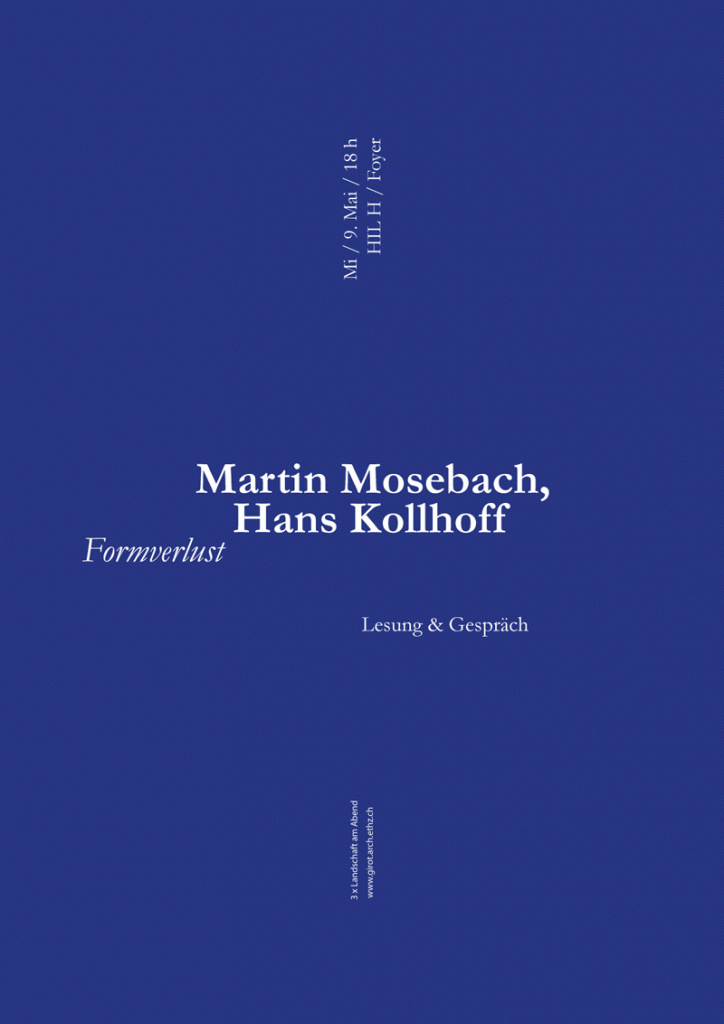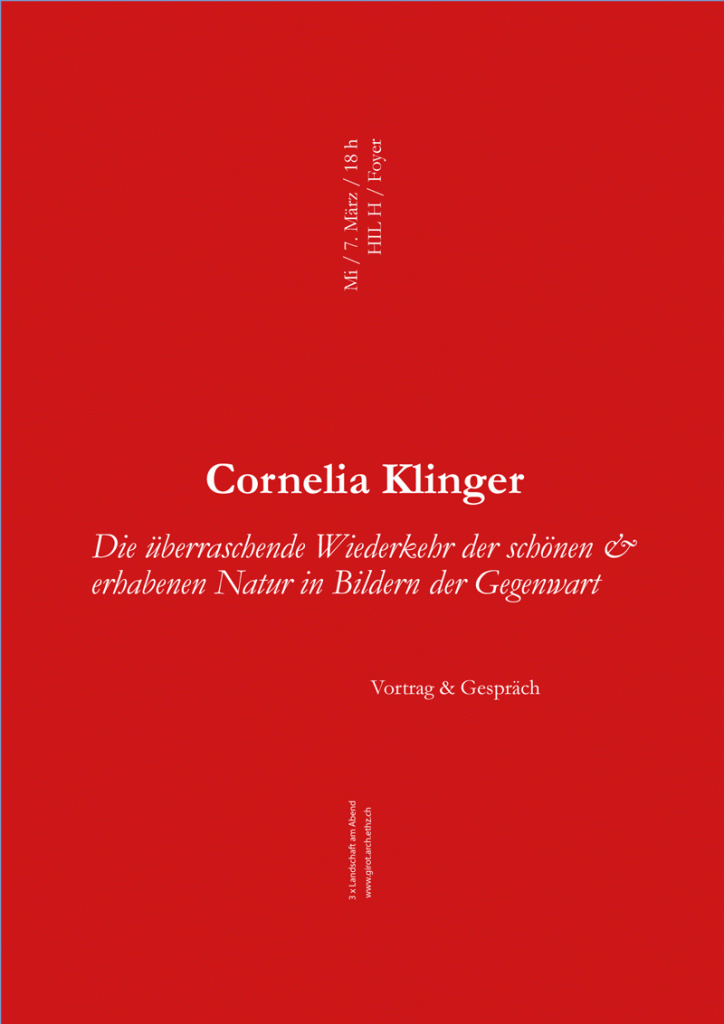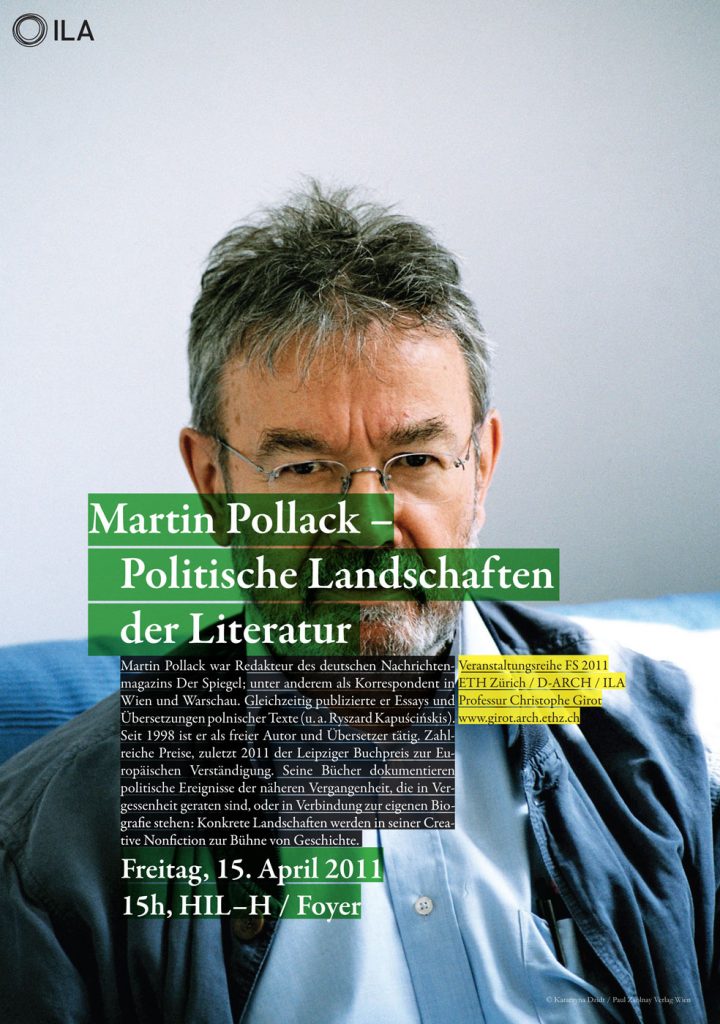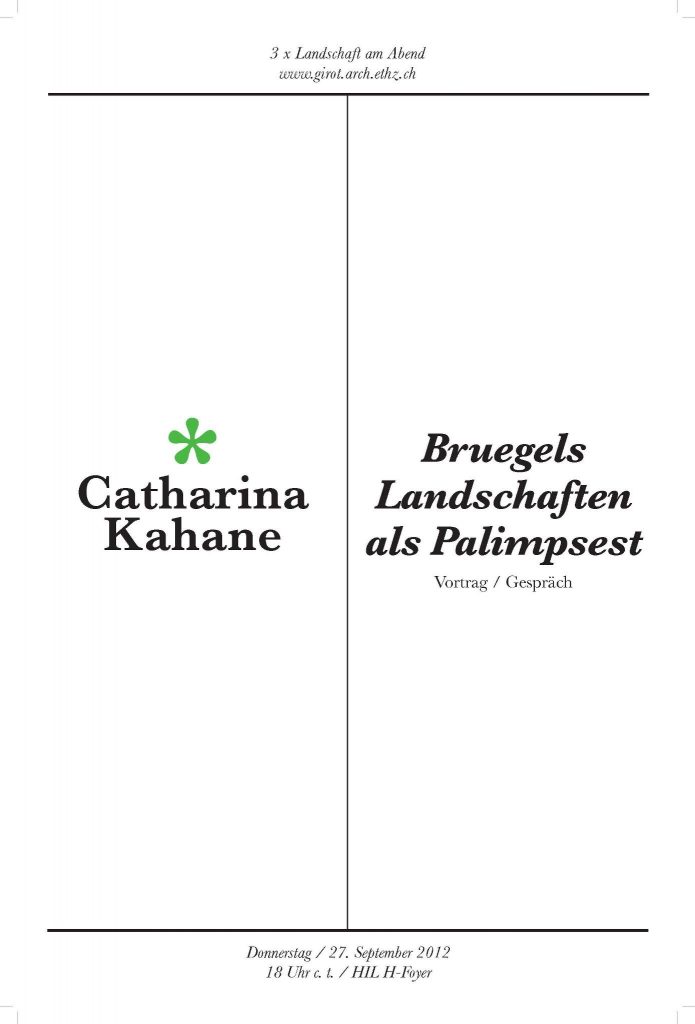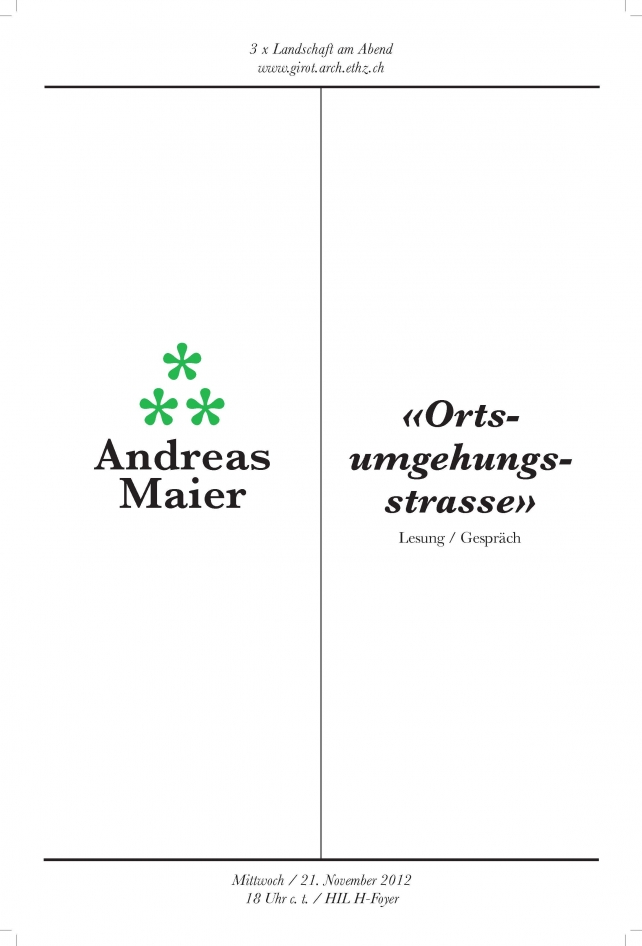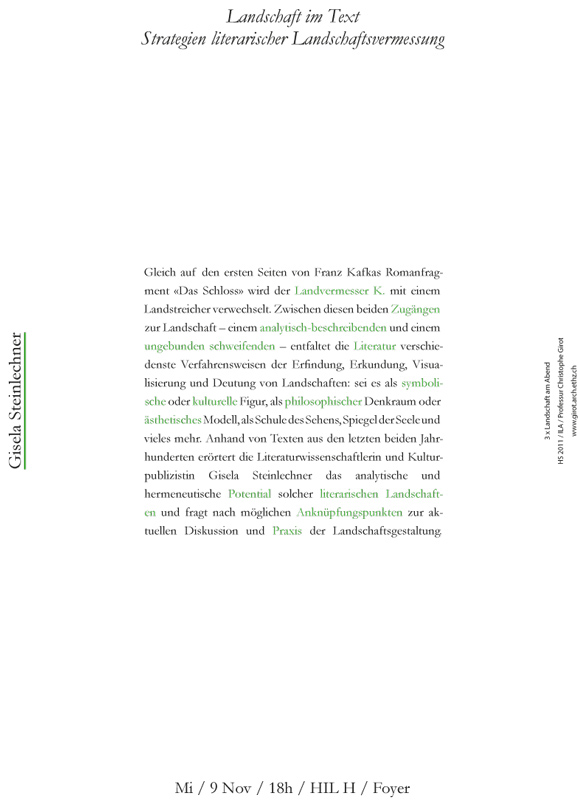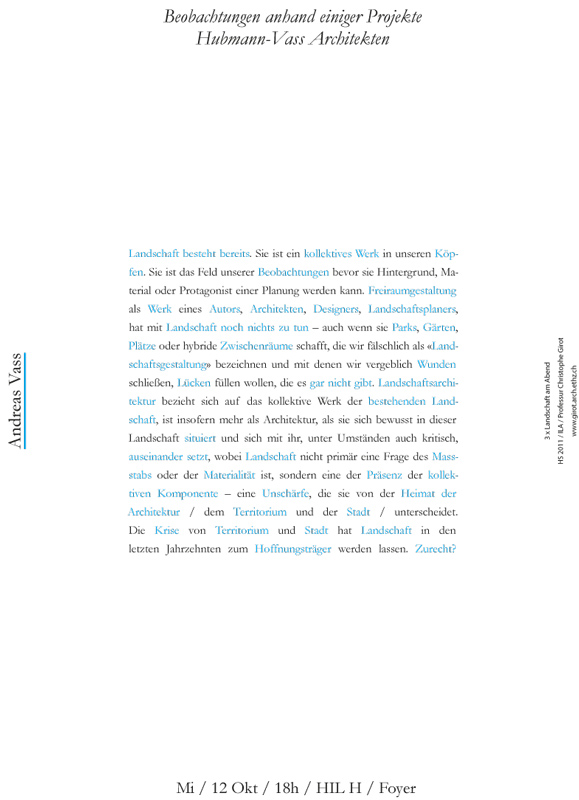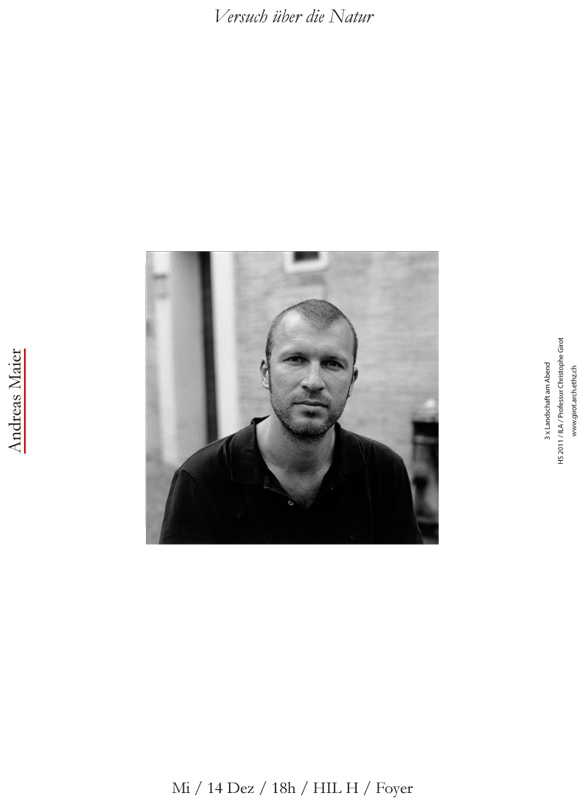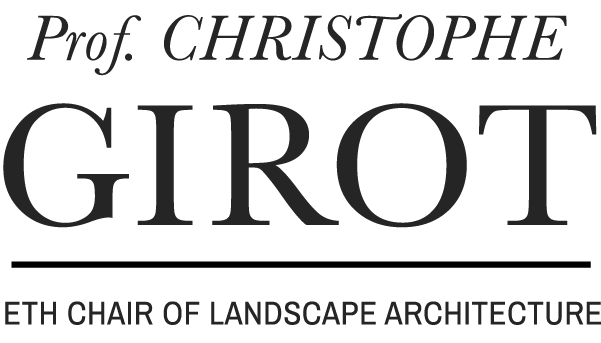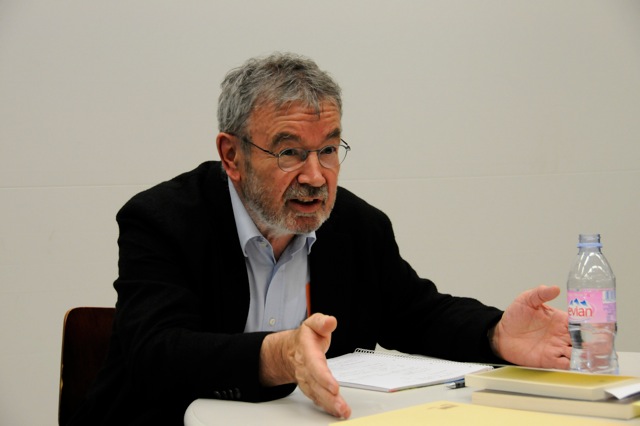
GUESTS
Katharina Kahane, Cornelia Klinger, Hans Kollhoff, Jörn Köppler, Andreas Maier, Martin Mosebach, Jörg Niederberger, Martin Pollack, Lothar Schäfer, Ullrich Schwarz, Andreas Vass
TIMEFRAME
2011 -2013
Evening Talks on Landscape
The Chair of Professor Christophe Girot organized the “Evening Talks on Landscape” Series to strengthen the discourse between students and teachers at the D-Arch through extracurricular events.
Katharina Kahane, Cornelia Klinger, Hans Kollhoff, Jörn Köppler, Andreas Maier, Martin Mosebach, Jörg Niederberger, Martin Pollack, Lothar Schäfer, Ullrich Schwarz, Andreas Vass et al. were invited to initiate stimulating and multifaceted discussions, in which different concepts of ‘landscape’ were only the starting point.
September 2012
Art Historian Catharina Kahane talked about “Bruegels landscapes as palimpsest”: In many historical paintings by Pieter Bruegel the Elder, the action is set in wide and deep landscapes, which can be viewed from an elevated position. But these landscapes are never simply neutral stages for human action. Bruegel makes them be a part of the story. In this way, the nature mediated via the landscape in these pictures gets the status of a subject, interfering into the narrative in his own way.
November 2012
Award-winning author Andreas Maier readed from his books, among them “Versuch über die Natur” as well as “Onkel J. Heimatkunde”, that is part of a cycle in which his childhood and his origins play an important role – and not least the ways the village and the landscape changed..as well as the word “Ortsumgehungsstrasse” (=bypass road).
February 2013
Architect Roland Gnaiger talked about “People, Landscape, Building – on culture and relation”. Roland Gnaiger can be characterized as a committed member of a decidedly modern, but always socially and culturally underpinned architecture, dealing with issues such as the anchoring of the building in the landscape and its cultivation methods, socio-political changes, traditional forms of construction, but also highly topical issues such as ‘energy efficiency’.
